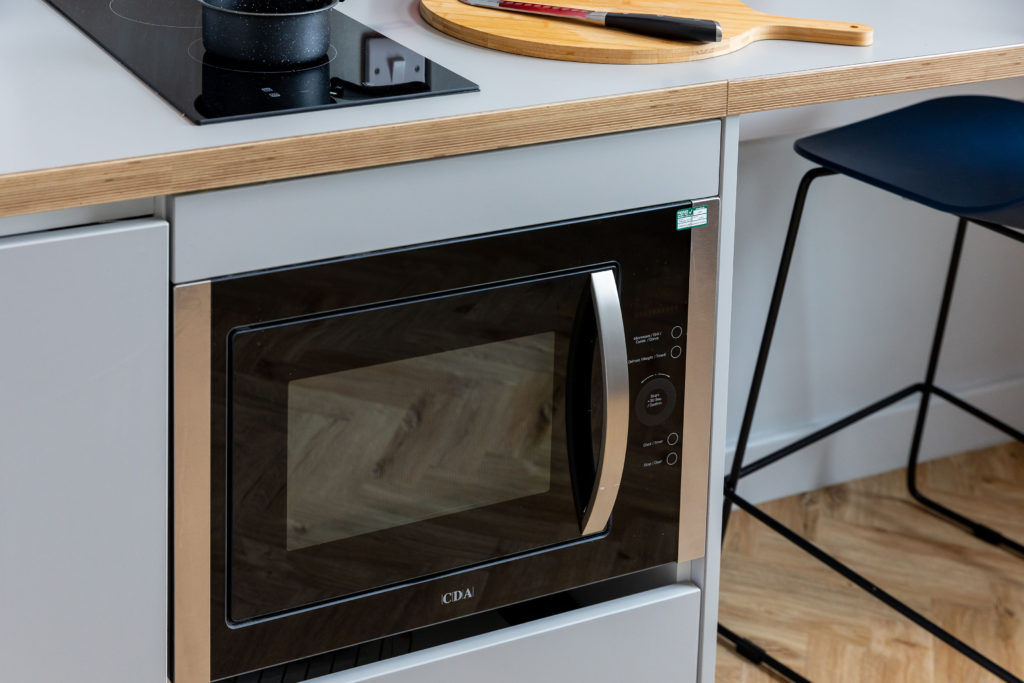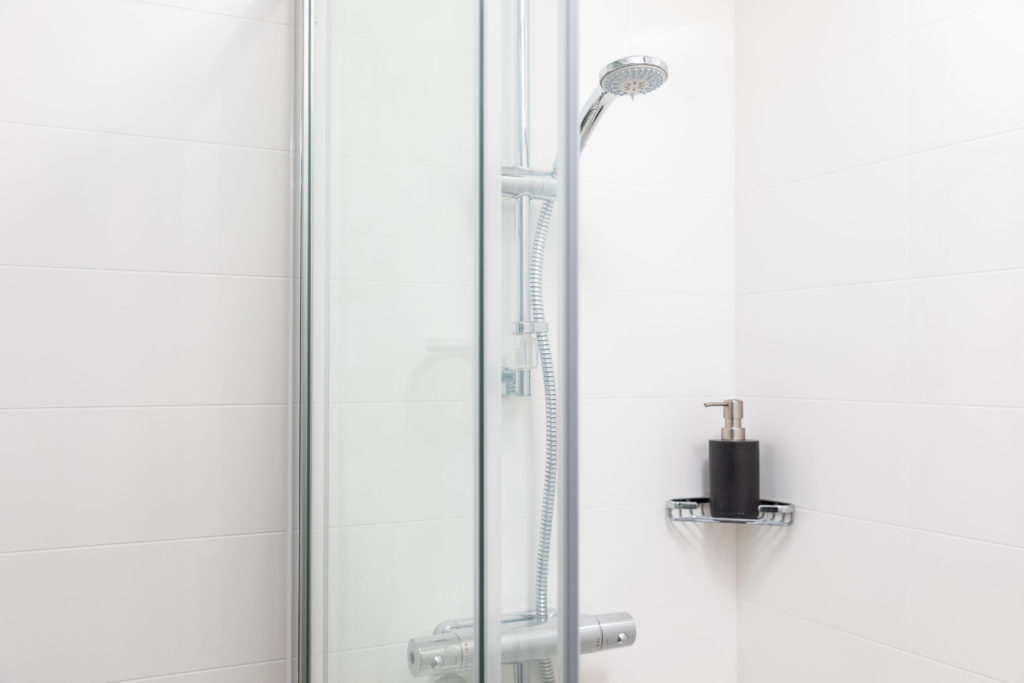Revealed: The Biggest Student Housing Problems in the South
Back
Any student who’s taken part in the private student housing hunt will be familiar with trawling property sites and fitting viewings in between lectures. In all the rush and competition, it’s easy to forget that problems can arise once you’ve moved into what you thought was your dream student house share.
Our national survey revealed that 98% of students in London and other cities in the South of England have experienced at least one major mishap while living in an HMO shared house.
Here!, we’re dedicated to improving the quality of student housing across all our UK city hubs. That’s why we’ve launched Fighting For a Fair Deal For Students. Our latest campaign aims to spread awareness of the issues students face in the private housing market, so you can arm yourself with the latest information to secure the student living experience you deserve. See our full collection of research and resources and learn how to rent with confidence.
Keep reading to find out how you can avoid the five biggest problems in South of England HMO house shares:

Splitting bills
Figuring out who owes what towards the gas, electricity, and broadband each month can be a make-or-break for housemate relationships. Our survey found that bill-splitting is a source of conflict for 58% of students in the South of England, with all Exeter and Egham students surveyed reporting they had problems with it.
With energy costs on the rise, students are certainly feeling the strain – leading to even more tension over utilities.
While rent is predictably the same each month, your water, gas, and electricity usage will vary depending on the season. It’s near-impossible to figure out who’s used more energy than anyone else in an HMO.
Many energy suppliers will offer a smart meter as part of your contract. This can help you to keep track of your daily energy usage, but you will need to get your landlord’s permission to have this fitted.
Our guide to dodging hidden housing fees is an essential tool for keeping your student finances in check and avoiding surprise costs.
Did you know? All-inclusive student living is the perfect way to keep the peace with your housemates. In the south, our Here! residencies combine your utility bills and broadband with rent, so you can keep control of your monthly costs and avoid arguments. While we can’t promise you won’t still squabble over taking out the bins or doing the washing up, our all-inclusive accommodation deals are a favourite with students!
Ignored calls to landlords
When a problem occurs in your HMO house share, whether it’s a fault with the electrics, plumbing, or gas, your landlord is your first port of call. In fact, many tenancy agreements require you to report any repair or maintenance needs to the landlord ASAP.
It’s in a landlord’s best interest to respond promptly to their tenants’ requests for repair or maintenance work, however big or small the issue. They will either notify you of when they will do the work themself, or let you know that they have instructed a contractor such as a plumber or an electrician to contact you and organise a visit.
However, our survey data reveals that not all landlords are as responsive as they should be. 32% of students in the South of England said their landlords had ignored their calls.
On a city-by-city basis, 44% of London students, over one-third of students in Exeter, Egham and Reading, and 20% of Bristol students feel they’d been ignored by their landlord.
It’s never okay for your HMO landlord to ignore your attempts to contact them.

You and your flatmates are not the only ones who sign your tenancy contract – your landlord also signs, agreeing to uphold certain conditions on their part. These conditions include maintaining and repairing the property when needed.
We suggest keeping accurate records of the issues you are trying to address, including photos of any areas that need repairs, doctor’s notes if your health is impacted, and evidence of your attempts to contact your landlord.
If your landlord is refusing to do repairs on your HMO rented property, you can seek advice from the housing charity Shelter.
Did you know? Your landlord is legally required to make your student home fit for human habitation. Issues like damp and mould, extreme heat or cold, overcrowding, infestations, or unfit water supply threaten this. If your landlord fails to do so, consult Citizen’s Advice.
Lack of security
Moving to university is a nerve-wracking enough experience without having to deal with the possibility of being burgled, yet this is the reality in many university cities.
Students can be easy targets for opportunistic burglaries due to shared houses being places where people frequently come and go. Poorly-maintained HMO properties are also easier to break into as they may have lax security measures such as outdated windows fixtures, faulty locks, and no burglar alarm systems.
Our survey found that this is the case in an alarming number of HMO house shares in the South of England. 44% of London students and one-third of students in Egham and Reading feel that their student HMO house share lacks adequate security measures.
What can you do to protect yourself from theft and burglary in your HMO house share?
- Invest in internal locks – Fitting locks on your HMO property’s internal doors can act as an additional security measure to external windows and doors. Make sure to ask your landlord’s permission before installing locks – they may even do this for you.
- Communicate about security – HMOs are often home to people who have different routines. Doors and windows may be opened and closed multiple times a day. Make sure your housemates are as security-conscious as you, and always lock windows and doors before leaving the house.
- Party safe – Keep house party action to common areas of your house-share, like kitchens and living areas. Conceal valuables out of sight in your bedroom to avoid theft or damage.

While not a preventative measure, it’s sensible to invest in student contents insurance. That way, if you are a victim, your valuables are covered.
To learn more about why contents insurance is a worthwhile expense while living in student housing, read our guide to student contents insurance.
Did you know? Different student contents insurance policies offer different levels of cover. Make sure the policy you choose offers the cover you need – sometimes large high-value items like gadgets or bikes must be insured separately, or at an extra cost.
Damp and mould
Damp and musty conditions are most common in older properties that have been neglected over time, disrupting ventilation and letting in moisture. For students looking to keep to a tight budget, these properties are often temptingly affordable.
Despite looking like a bargain, living with damp and mould is not a compromise worth making. If left unaddressed, they can have serious impacts on your health and well-being as well as damage your clothes and possessions.
Shockingly, our survey found that 42% of students in the South of England experience damp and mould while living in an HMO. Bristol and Reading were the cities worst hit, with 60% and 50% of students reporting mouldy house share conditions.
Once you are already living in a house share with damp and mould, landlords may try to put the onus on you as a tenant, suggesting measures like heating the house, keeping windows open, and even investing in a dehumidifier. While these efforts can be useful in preventing mould from starting, they won’t fix an ongoing issue.
If your damp and mould are caused by any of the following, your landlord is responsible for carrying out the appropriate repairs and updates:

- Structural defects – including damage to rendering or guttering
- Lack of damp proofing measures
- A leak – this could be from a pipe, gutter, or crack
- Lack of adequate insulation, heating, or ventilation – including bathroom and over-cooker fans
The best way to avoid a damp house share is to look out for the tell-tale signs during the viewing stage:
- Are dehumidifiers present in the property?
- Are there black spots on the walls?
- Is there condensation on the windows and/or puddles of water around the window frames?
- Is there a musty damp smell in the air?
- Do the walls feel damp to the touch?
If you’re already living in an HMO property with damp and mould problems, understanding the responsibilities outlined in your tenancy agreement could be the key to finding a solution. Check out our useful guide to student tenancy agreements.
Did you know? Proper ventilation is the key to preventing condensation and damp which can eventually develop into mould. Use ventilation fans and open windows when showering, cooking, or using appliances like tumble dryers.
Drainage issues
Reliable plumbing is something we often take for granted in the UK. It’s not until we experience a major problem with our drains that we realise how unpleasant it is to live with blockages, bad smells, leaking pipes and non-functioning showers or toilets.
A surprising number of students experience issues with their drains while living in house shares. Across popular university cities in the South of England, the following percentages of students reported problems with drainage in their HMO properties:
- 31% in London
- 24% in Exeter
- 40% in Bristol
- 17% in Reading
While maintenance and repair of plumbing and sewerage systems is out of your control, there are a few things you should do as a student tenant to prevent leaks and blockages:
- Regularly unclog your shower or bath drain of hair
- Never pour oil or fat down your kitchen plug hole
- Use a bath mat in the bathroom and mop up any excess water left on the floor
- Keep taps and showerheads clear of limescale
- Only flush toilet roll down the toilet, never kitchen roll, wet wipes, or sanitary products
- Invest in a toilet plunger just in case

Did you know? Your landlord must give you at least 24 hours’ notice before entering your HMO rental to conduct repair or maintenance work unless it is an emergency situation such as a flood, fire, or gas leak.
Is there a solution to the HMO crisis?
Considering all the problems identified in our survey, it’s no shock that 94% of student HMO renters in the South of England consider or have considered alternative accommodation options.
While HMO housing is currently the most popular choice among students, other options are available. Over 60% of students in London and the South consider managed student accommodation providers, according to our survey. These offer better standards of living, increased safety and security, and fuss-free payment options compared with HMOs.
We’re fighting for a fair deal for students. Discover what the most common accommodation issues are, learn how to get more savvy when dealing with private landlords, and share your student rental horror stories. Find out more.

